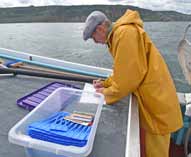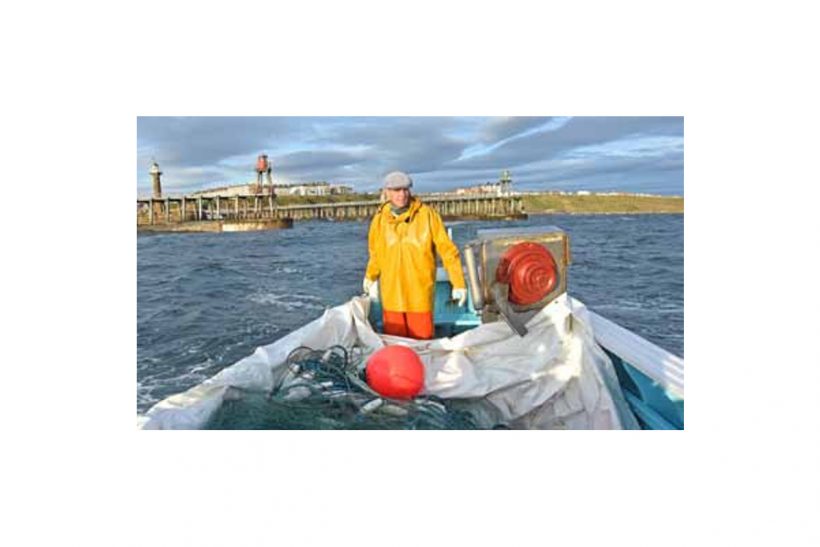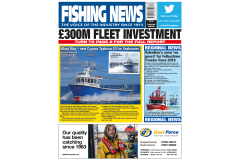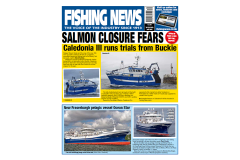Pressure mounts for netting shutdown
Traditional salmon netsmen in northeast England are fighting for survival as salmon anglers and riparian owners apply further pressure on ministers to stop the traditional fishery, reports David Linkie
Their plight is highlighted this week as the short three-month seasonal licensed fishery closes on 31 August – and there are fears the fishery could be closed completely in 2019.
The recreational salmon angling sector has applied pressure on the commercial salmon fishery for decades, maintaining that netsmen are one of the main reasons for reducing numbers of migratory fish – salmon and sea trout – returning to their rivers of birth to spawn.
The angling lobby is feeding ministers the line that catches by netsmen are extremely high in the fishery this year, given the lower than average levels of water in the rivers because of the unusually hot weather experienced in June and July. This opportunist claim is completely fake news, as conclusively shown by the netsmen’s daily catch returns, and the marked reduction in the number of tags that have been issued. Catches are reported to be around 70% lower than in recent seasons. This scarcity is reflected in the current high prices on offer for wild-caught salmon and sea trout.
Main image: Whitby netsman Martin Hopper keeps a watchful eye on the swell – and the future – while leaving Whitby pier ends last week.

An all too familiar sight – one of the ever-increasing
number of seals swims alongside the net.
Netsmen say they are just a convenient scapegoat. They say their small-scale, tightly controlled and limited fishery is insignificant when viewed against the huge area of the North Sea and out into the North Atlantic, and against the loss of fish to the constantly increasing number of predatory seals that kill unknown numbers of salmon and sea trout along the coast and in river estuaries annually.
Further evidence that far more significant natural forces are affecting Atlantic salmon stocks comes from a recent report that argues powerfully that exploding mackerel stocks are eating salmon smolts and depriving them of food (see below).
In April this year, the small number of netsmen who remain in northeast England won a significant victory following a strong campaign of opposition on their behalf by the NFFO, with the announcement that proposals by the Environment Agency (EA) and DEFRA to close the traditional drift-net fishery with immediate effect, and severely curtail inshore beach fisheries for salmon and sea trout, would not be implemented for the 2018 season.
The alternative measures for T and J nets fished off the shore, which traditionally catch mainly sea trout, included considerably earlier start and end dates for the season. Given the poor weather conditions that frequently prevail on the east coast of England at the suggested times, these would severely restrict the days on which netsmen could work, making the cost of a licence unrealistic.

Every fish is recorded and
tagged as soon as it is caught to give full accountability and
traceability, even though this creates considerable challenges in a small open boat.
This small-scale fishery is widely viewed as one of the most regulated, well-documented and transparent fisheries in the UK. In addition to daily and weekly start and close times, netsmen are required to submit detailed daily catch returns, including putting uniquely-numbered tags through the gills of every salmon and sea trout caught.
Closure of the northeast fishery, which would signal the end of 150 years of tradition, would also remove the last source of wild-caught salmon, and leave leading purveyors of smoked salmon unable to supply niche products for loyal consumers.
For generations of inshore fishermen, netting has brought valuable seasonal balance to inshore fishing by reducing potting effort on shellfish stocks.
Inshore fishermen in the region have also been hit hard by the DEFRA ban on landing berried lobsters that came into force in October last year. This is causing a significant loss of income for the sector, and fishermen say the closure of the salmon and sea trout net fisheries on top of this would make their whole operation unviable.
The almost inevitable result would be further fleet downsizing and job losses in coastal communities where alternative forms of employment are few and far between.
Ned Clark, chairman of NFFO North East, said: “These salmon and trout fisheries have formed the cornerstone of inshore fisheries on the northeast coast of England for generations, and the fact that they have survived for this long is a testament not only to the sustainability of these fisheries, but also to the tenacity and fortitude of the remaining fishermen in fighting to retain their rights to fish in the face of overwhelming political pressure to permanently close their fisheries. We do accept that there are global problems with salmon stocks and sea survivability. Northeast rivers are, in general, improving, and there is a harvestable surplus that should be available to catch. There are no problems with the local trout stocks. The fight will continue.”






